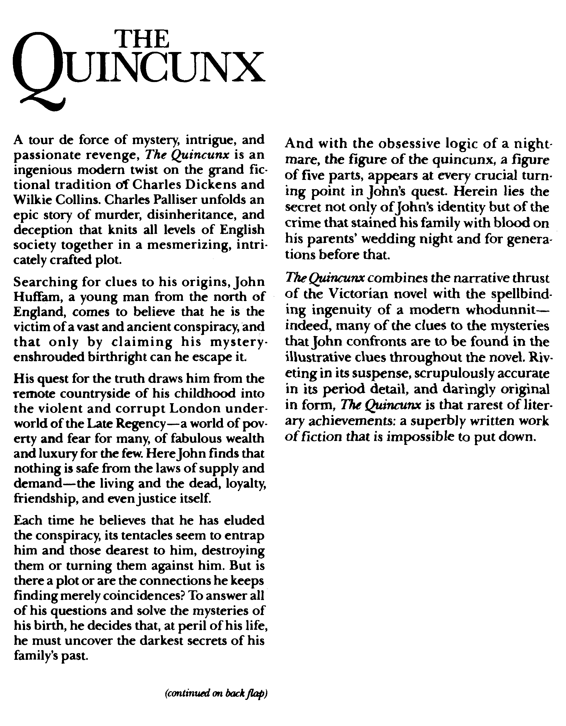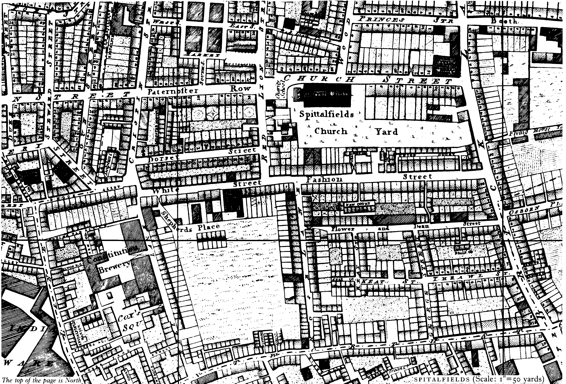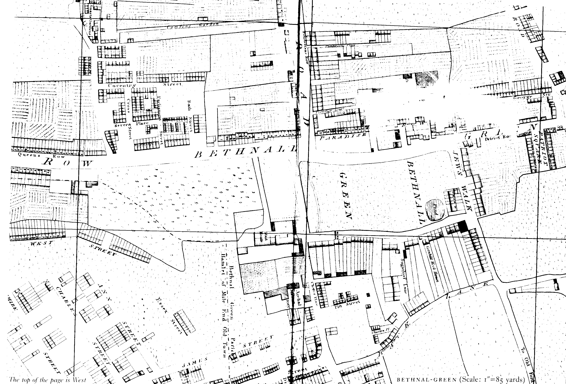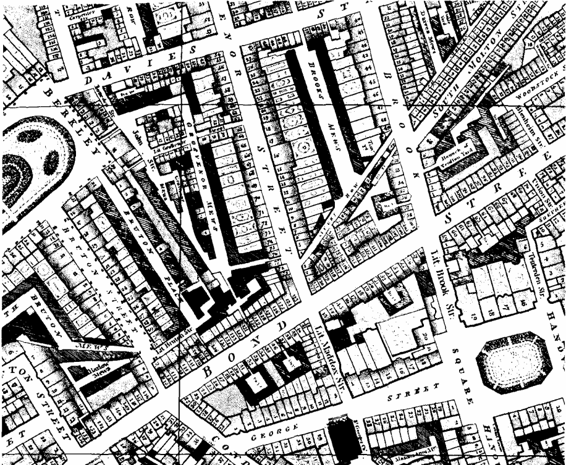Charles Palliser
Authors: The Quincunx







THE
QUINCUNX
THE
UINCUNX
Q
CHARLES PALLISER
BALLANTINE BOOKS • NEW YORK
For My Mother
(4th May 1919—22nd February 1989)
NOTE ON COINAGE
Twelve pence make one shilling (1s.). Twenty shillings make one pound (1£).
There are also these coins: A farthing, four of which are worth a penny (1d.). A ha’penny, two of which are worth a penny. A crown which is worth five shillings and a half-crown (2s. 6d.). A sovereign which is worth one pound. A guinea which is worth twenty-one shillings (1£ 1s.).
Copyright © 1989 by Charles Palliser
All rights reserved under International and Pan-American Copyright Conventions.
Published in the United States by Ballantinc Books, a division of Random House. Inc., New York, and distributed in Canada by Random House of Canada Limited, Toronto.
First published in Great Britain in 1989 by Canongate Publishing Limited.
Map details from the Horwood Map (1813 edition) are reproduced here with permission, and from film supplied, by Harry Margary, Lympne Castle, Kent in association with The Guildhall Library, London.
Library of Congress Cataloging-in-Publication Data Palliser. Charles.
The Quincunx / Charles Palliser.
— 1st American ed.
p. cm.
ISBN 0-345-36463-5
I. Title.
PR6066. A43Q85 1990
89-91787
823'.914—dc20
CTP
Design by James Hutcheson
Illustrations by Jenny Phillips
Manufactured in the United States of America
First American Edition: February 1990
10 9 8 7 6 4 3 2 1
CONTENTS
THE HUFFAMS
1
THE MOMPESSONS
133
THE CLOTHIERS
359
THE PALPHRAMONDS
495
THE MALIPHANTS
679
Alphabetical List of Names
785
Quid Quincunce speciosius, qui, in quamcunque
partem spectaveris, rectus est? (Quintilian)
THE HUFFAMS


MAYFAIR AND SOHO (Scale: 1"=115 yards)
The top of the page is West

A Wise Child
It must have been late autumn of that year, and probably it was towards dusk for the sake of being less conspicuous. And yet a meeting between two professional gentlemen representing the chief branches of the law should surely not need to be concealed.
Let us imagine, then, how Law might have waited upon Equity.
Approaching a particular house in a street near Lincoln’s-inn-fields, Law, embodied in the person of a small, pale-faced gentleman of about forty years of age with a large head, mounts the steps and rings the bell. The door is immediately opened by a young clerk. The visiter steps inside, is relieved of hat, great-coat, and gloves, and is then ushered into a small dark room at the rear of the house. There he sees a figure seated at a little table at the other end of the chamber. The clerk noiselessly withdraws. The gentleman who is already there rises with the briefest of bows and indicates a chair opposite him before the fire. The newcomer seats himself while the elder man takes his chair again and brings his gaze to bear upon his guest. Equity is some fifteen years the elder, with a high-coloured complexion, a lofty nose and a face most remarkable for a pair of black bushy eyebrows.
There is a long pause and at last the newcomer clears his throat: “It has been an honour, sir, to receive and obey your summons.”
There is a note of polite interrogation in this observation but Equity appears not to hear it for he continues to gaze at his guest.
After another minute Law asks nervously: “May I know how I can be of assistance?”
“Did you take the precautions I requested?” the host asks.
“Indeed I did. I am certain that no-one followed me here.”
“Good. Then our meeting has probably been kept from the knowledge of a third party.”
“A third party? My dear sir, you intrigue me. To whom do you refer?”
“I shall ask the questions,” the other gentleman replies with only the slightest emphasis on the pronoun.
His guest flushes.
3
4 THE
HUFFAMS
The elder gentleman takes something from his pocket and says: “Now, you have a client whose name I have written on this piece of paper which I ask you to be good enough to read.” He holds it out for a few moments and when Law has looked at it and nodded in confirmation, he replaces it: “Very well. Then I will lose no time in coming to the point: the document which your client possesses has the capacity to damage very materially the interests of the party for whom I have the honour to act, and in view of this …”
He breaks off for on Law’s face is an expression of manifest bewilderment: “My good sir, I assure you I know nothing of such a document.”
“Come, come. Not two weeks past your client sent a copy of it to us demanding money and giving your name for correspondence.”
“That may be so … that is to say, I am certain that it is so if you state it to be. But I beg you to believe that I am no more than a receiving-office in this transaction.”